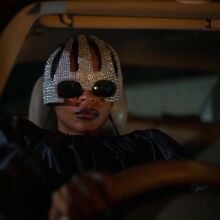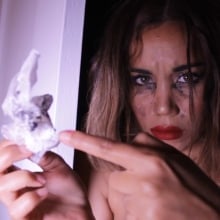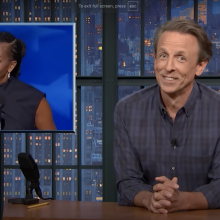From its founding in 1912, the Girl Scouts of the USA has preached inclusion, welcoming members of all backgrounds into its ranks. Now the nonprofit organization is launching a $500,000 effort to become anti-racist. The move signals Girl Scouts' commitment to racial equality and the cultural significance of publicly declaring that position, but it may draw the ire of critics who cast such work as divisive.
Interim CEO Judith Batty said in an interview that while Girl Scouts come from "every walk of life," she would like to see stronger retention for members who belong to communities of color, and for all girls to feel supported and included throughout their experience.
The anti-racism initiative is being underwritten by a grant from the Ford Foundation and will begin with an audit of the nonprofit's programs, policies, and practices, and the 111 local Girl Scout councils that oversee programming for its young members. The goal of the audit is to determine whether Girl Scouts fosters a welcoming space for members. It may also provide data about the degree to which the nonprofit has difficulty retaining members of color, and why. (Girl Scouts declined to provide detailed information about the racial and ethnic composition of its membership.)
Once the audit is complete, Girl Scouts will determine how to address the results, which may include adjusting its language, marketing, and programming so that it's fully inclusive.
"I think we need to understand, as a movement ourselves, where our issues are," said Batty. "They're not all the same across the country, of course, but what we want to deal with is the systematic racism that exists, not only in our society, but to the extent … [Girl Scouts] have systems [and] processes that reinforce the racial disparities that exist in the U.S., those are the disparities and those are the processes and systems we want to dismantle."
"I always felt like I belonged in Girl Scouts. That's what we want for every Girl Scout..."
Since George Floyd's death last summer, which sparked a reckoning amongst corporations and nonprofits as well as protests across the U.S. and the world, Girl Scouts has created task forces and committees to evaluate its work on diversity, equity, and inclusion (DEI). It hired a senior researcher whose expertise is DEI, and some of the local councils have hired professionals with similar skills. Among the concerns are how racial justice informs the Girl Scouts camp experience, whether its communications and marketing reflect its stated commitment to inclusion, and how it engages multicultural families.
Batty, who is the first Black CEO of Girl Scouts, said that her own experience in a troop, in the 1970s, was overwhelmingly positive. Batty belonged to both an all-Black troop and a troop in which she was the only Black girl.
"I always felt like I belonged in Girl Scouts," she said. "I always felt like it was the place for me. I never felt like I wasn't heard or valued. That's what we want for every Girl Scout, regardless of what troop she's in. That's what we're working towards."
Batty said that her race wasn't a topic of discussion when she was the only Black member of her troop. Now, she meets Girl Scouts who are eager to talk about their racial or ethnic identity, a shift she described as "healthy."
Batty said that her experience with local councils embracing the Girl Scouts value of "welcoming all girls" will theoretically mean minimal skepticism from leaders, parents, and members in response to the Girl Scouts' anti-racist initiative. Yet the recent backlash against anti-racism as a form of indoctrination, particularly in certain quarters of academia and conservatism, may ensnare Girl Scouts in a larger cultural firestorm.
If that happens, it won't be the first time the organization becomes a talking point in the country's battle over how it deals with social justice issues. In 2011, the Girl Scouts officially adopted a policy permitting transgender girls to join, a stance that prompted criticism from religious and conservative groups.
"There's always going to be a little bit of dissension," said Batty. "What we do is we focus on what we want to be and where we're trying to go. We want to be the organization that welcomes all girls, that all girls feel like it's their organization. We build girls of courage, confidence, and character, and we will continue to do that."
Related Video: How allies can step up for the Asian American community
Topics Activism Social Good Racial Justice







